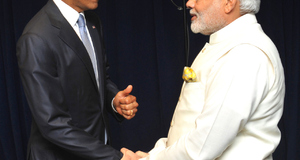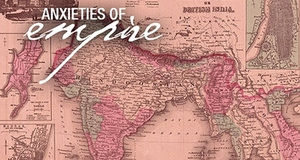Featured Article:Two Roadmaps for Kashmiri DemocracyTheories of International Relations: Contextualizing the RoadmapsThe prevailing theory of contemporary international relations, realism makes three guiding assumptions about the international realm. First of all, the state is the “main [international] actor” for realists, and it operates by the principle of sovereignty (Dunne and Schmidt, 2011, p. 93). The state thus reserves the right to assert and exercise its legislative authority over its citizens (Dunne and Schmidt, 2011, p. 93). Secondly, states compete for power and security in working towards their ultimate goal of survival, which is “held to be a precondition for attaining all other goals” (Dunne and Schmidt, 2011, p. 94). Realism sees the state as the “supreme good.” As such, it gives state leaders guided by the “ethic of responsibility” the right to protect the state “at all costs” (Dunne and Schmidt, 2011, p. 95). Last of all, the assumption of self-help holds that there is “no higher authority” then the state to “prevent and counter the use of force” (Dunne and Schmidt, 2011, p. 95). Classical and structural realism constitute two influential schools of realist thought. Classical realism traces its roots back to fifth century Greek historian Thucydides, who saw power politics as a law of human behavior (Dunne and Schmidt, 2011, p. 89). In line with this notion, “classical realists argue that it is from the nature of man that the essential features of international politics, such as competition, fear, and war, can be explained” (Dunne and Schmidt, 2011, p. 89). Structural realists, conversely, “attribute security competition and inter-state conflict to the lack of an overarching authority above states and the relative distribution of power in the international system” (Dunne and Schmidt, 2011, p. 91). The opposing ideas of prominent structural theorists Kenneth Waltz and John Mearsheimer are particularly relevant here. While Waltz framed the theory of defensive realism by arguing that states merely use power to achieve their ultimate end of security, Mearsheimer gave rise to offensive realism by contending that “all states are continuously searching for opportunities to gain power at the expense of other states” (Dunne and Schmidt, 2011, p. 92). If any school can challenge the dominance of realism, it is liberalism. Recognizing the diversity of liberal worldviews, Tim Dunne has provided a widely applicable, four-dimensional definition of liberalism. To begin with, “all citizens in a state are juridically equal and possess certain basic rights to education, access to a free press, and religious toleration.” Furthermore, the state’s legislative assembly only holds the authority granted to it by citizens and is not allowed to trample on their basic rights. Crucially, individuals also possess the right to own property, “including productive forces.” Last of all, market forces guide economic exchange with minimal intervention from domestic or international bureaucratic agencies (Dunne, 2011, p. 102).Woodrow Wilson’s pioneering liberal notion of collective security is also important for our purposes here. As Dunne explained, “The First World War shifted liberal thinking towards a recognition that peace is not a natural condition but one that has to be constructed” (2011, p. 105). In keeping with this, then-US President Wilson called for the creation of a League of Nations based on collective security, the idea that “each state in […] a system accepts that the security of one is the concern of all, and agrees to join in a collective response to aggression” (as cited in Dunne, 2011, p. 105). Although the League failed in its mission to prevent the outbreak of a second global conflict, collective security continues to be integral to the purpose and operation of the United Nations, which became the world’s premier international body after the end of the Second World War. The intellectual hegemony of realist and liberal outlooks has not gone unquestioned. A body of work “primarily and explicitly concerned with the ethical dimension of world politics,” normative IR theory “engages with, explores, and extends” many of the assumptions that underlie realism and liberalism (Erskine, 2013, p. 38). Normative IR theory itself abides by three central principles: first of all, norms have moral weight, as they serve as guides to “what is required, permitted, or prohibited” (Erskine, 2013, p. 46). Some normative IR theorists question the validity and even the existence of international norms, although Mervyn Frost’s recognition of the unwillingness of international actors to transgress certain principles – at least, not “without pointed justifications and excuses” – serves as a valuable counterpoint to these perspectives (Erskine, 2013, p. 47). Moving on to the second central principle, our “sites of value” – or ‘moral starting points’– determine the inclusiveness of our professed moral norms and thus “affect how far our duties to others extend” (Erskine, 2013, p. 48). Last of all, normative IR theory depicts actors in world politics as “moral agents,” who are “defined by their capacities for deliberating over possible courses of action and their consequences” (Erskine, 2013, p. 48-49). Ethical cosmopolitanism, communitarianism, consequentialism, and deontology are all seminal IR theories and highly relevant to the focus of this paper. Ethical cosmopolitanism asserts that “we have duties to all others as human beings,” and so we must “bracket, or abstract from, particular ties and loyalties” to “achieve a perspective from which no one is excluded” (Erskine, 2013, p. 43). In opposition to this worldview, communitarianism sees “membership in particular communities, and participation in their practices” as “morally defining”; more specifically for the purposes of normative IR theory, communitarianism is “uniquely state-centric,” insofar as “the borders of one’s state demarcate those who are ‘insiders’ in the sense of having equal moral standing” (Erskine, 2013, p. 44). Consequentialism and deontology differ from cosmopolitanism and communitarianism as they “provide moral frameworks to guide and evaluate our decisions regarding what we ought to do” rather than focusing on “moral identity” and “the scope of our obligations to others” (Erskine, 2013, p. 44). Consequentialist theories focus on the outcomes of actions rather than the actions themselves, demanding that we “make choices according to the state of affairs that will result from our actions” (Erskine, 2013, p. 44). Conversely, deontological theories contest that certain acts are inherently wrong, irrespective of their effects (Erskine, 2013, p. 45). A final, pertinent theory that speaks to some deontological perspectives is the doctrine of double effect (DDE), which argues that “it is permissible to perform an action even if it results in foreseeable harm, as long as this harm is not directly intended” (Erskine, 2013, p. 45). Many concepts in normative IR theory tie into the constructivist take on the international realm. A body of thought that has expanded rapidly since the end of the cold war, constructivism is “a social theory that is broadly concerned with the relationship between agents and structures” (Barnett, 2011, p. 154). Constructivists believe that actors are “produced and created by their cultural environments” and the knowledge produced therein, which in turn enables them to “construct and give meaning to reality” (Barnett, 2011, p. 155). The social construction of reality determines the legitimacy of actions in any given society (Barnett, 2011, p. 155). This speaks to the constructivist conception of power: in line with the logic of appropriateness, states generally crave legitimacy, in that they want other members of the international community to believe that they abide by international norms (Barnett, 2011, p. 157). That said, states help to define norms at the same time as they attempt to comply with them, for power “also includes how knowledge, the fixing of meanings, and the construction of identities allocate differential rewards and capacities” (Barnett, 2011, p. 157). The final reference points for this paper, those pertaining to South Asian IR theory, draw from most, if not all of the theories outlined above. South Asian international thought as a whole is possibly even harder to define in narrow terms than the likes of liberalism or normative IR theory; as such, I elucidate the views of Pakistani-born scholar Sohail Inayatullah as outlined in his 2008 article, “Distant Futures and Alternative Presents for South Asia.” Inayatullah asserted that neorealist ideals and resultant practices have “handcuffed” South Asia to its past and “chained” the region to its future, both of which are thus defined by “war, poverty and stultifying bureaucracy, state, and military” (Inayatullah, 2008, p. 52). Inayatullah explained that the neorealist conception of statism has fostered suspicion between the major players in the South Asian arena, who therefore “function like self-interested egoistic individuals” (2008, p. 55). The discourse of partition is a uniquely South Asian component of Inayatullah’s depiction of neorealism. According to the author, Pakistan’s breakaway from India left “more than a generation of mistrust, hate and fear” in its wake, as a result of which “creating alternative futures, new utopias and eutopias, not dominated by the partition discourse has been nearly impossible” (Inayatullah, 2008, p. 53). Later in his article, Inayatullah sketched nine scenarios for South Asia’s future. He grouped these permutations into four broad categories: Failed South Asia, in which the region succumbs to chaos and potential nuclear collapse; Globalization, in which South Asia is overcome by Western-style consumerism and/or indigenous cultural intermingling; Dramatic Change, in which the region breaks from tradition entirely in a technological, political and/or cultural sense; and the Community Future, in which Gandhian localism comes to reign across the board or South Asian nations break apart to form federations of states. Inayatullah clearly endorsed an idealistic vision of South Asia’s future—“one based on difference and unity, on creative renderings of history and of the local and universal” (2008, p. 71)—and the last major section of his article lists the stepping stones to such a future. These include planning the use of water for the long term, protecting human rights, denationalizing self, economy and identity, rethinking colonial interstate boundaries, encouraging self-reliance and localism, promoting the universal aspects of South Asian religions and cultures, developing legal structures that protect the rights of women, children, the aged, and the environment, and ensuring that all governmental decisions are transparent.Continued on Next Page » Suggested Reading from Inquiries Journal
Inquiries Journal provides undergraduate and graduate students around the world a platform for the wide dissemination of academic work over a range of core disciplines. Representing the work of students from hundreds of institutions around the globe, Inquiries Journal's large database of academic articles is completely free. Learn more | Blog | Submit Latest in Political Science |


















